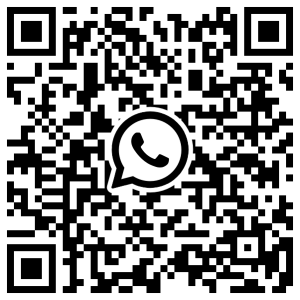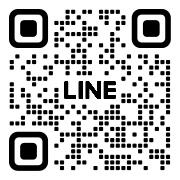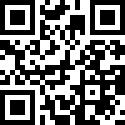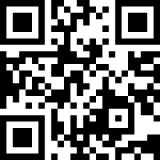US says Bioceres genetically modified wheat safe to grow
Updates Aug 27 story, adds comments from Bioceres in paragraphs 2-3 and 11; from Japan in paragraphs 13-14; and a German grain trader in paragraph 16
By Tom Polansek and Julie Ingwersen
CHICAGO, Aug 28 (Reuters) -A type of genetically modified wheat developed by Argentina's Bioceres Crop Solutions BIOX.O may be safely grown in the United States, the U.S. Department of Agriculture said on Tuesday.
The determination clears the U.S. market for production of HB4 wheat, which is modified to tolerate drought, Bioceres said on Wednesday. It is a potential win for farmers grappling with drought and more severe weather, but risks pushback from some consumers and importers.
The United States, the world's fourth-largest wheat producer, is the fourth country to allow production of HB4 wheat, following Argentina, Brazil and Paraguay, Bioceres said.
Still, it will take years for Bioceres to complete additional steps, such as field trials, before HB4 wheat is grown commercially in the U.S., industry group U.S. Wheat Associates said.
"Wherever wheat is grown in the world, drought takes its toll on yields and quality, so an innovation like HB4 holds a lot of interest for growers like me," said Michael Peters, an Oklahoma wheat farmer and past chairman of U.S. Wheat Associates.
Genetic modification involves altering a plant's makeup by transferring DNA from one organism to another, and is common in crops such as corn, used for livestock feed. Some consumer groups oppose genetic modification of wheat over concerns about human health, since it is widely used to make bread and pasta, and therefore consumed directly by people.
USDA's decision on HB4 wheat is farther than the agency has ever gone with genetically modified wheat, U.S. Wheat Associates said.
Bioceres has said opposition to genetically modified wheat is easing due to soaring food prices and because GM crops can survive drought and pests, reducing the risk of famine.
In May, the company said it started sales of genetically modified wheat seeds in Argentina, the first time the technology became commercially available to farmers anywhere in the world.
FIELD TRIALS
The U.S. Food and Drug Administration concluded a review of Bioceres' wheat in 2022 without further questions. The FDA oversees the safety of food from new genetically modified crops before they enter the market, while the USDA reviews the impact on agriculture and the environment.
Australia, New Zealand, South Africa, Nigeria, Thailand, Indonesia, Colombia and Chile have approved HB4 wheat for food and feed use, according to Bioceres. The company said it received a license to perform field trials in Australia for an eventual production application.
Top buyers of U.S. wheat, including Mexico, the Philippines and Japan, have not approved it.
Japan must closely monitor the situation and would need to approve genetically modified wheat for distribution, said Kenji Okuhira, a director of the trade and operation division at Japan's Ministry of Agriculture, Forestry and Fisheries (MAFF).
"Even with approval, whether Japan would buy it or not would depend on actual demand from millers, or ultimately consumers," Okuhira said.
Two decades ago, Monsanto Co was working to commercialize wheat bred to withstand treatments of its weed-killer Roundup, but the company halted that effort in 2004. International buyers had threatened to boycott U.S. wheat if the product was introduced to the marketplace. Bayer AG BAYGn.DE purchased Monsanto in 2018.
Some grain traders worried about the risk for genetically modified wheat to mix with non-GM wheat in bulk shipments.
"The GMO issue has declined into a sort of quiet stalemate in recent years," a German trader said. "But the refusal to accept GMOs in many importing regions, especially Europe and Asia, has not weakened."
Reporting by Tom Polansek and Julie Ingwersen in Chicago and Maximilian Heath in Buenos Aires; Additional reporting by Yuka Obayashi in Tokyo and Michael Hogan in Hamburg; Editing by Jonathan Oatis and David Holmes
الأصول ذات الصلة
آخر الأخبار
إخلاء المسؤولية: تتيح كيانات XM Group خدمة تنفيذية فقط والدخول إلى منصة تداولنا عبر الإنترنت، مما يسمح للشخص بمشاهدة و/أو استخدام المحتوى المتاح على موقع الويب أو عن طريقه، وهذا المحتوى لا يراد به التغيير أو التوسع عن ذلك. يخضع هذا الدخول والاستخدام دائماً لما يلي: (1) الشروط والأحكام؛ (2) تحذيرات المخاطر؛ (3) إخلاء المسؤولية الكامل. لذلك يُقدم هذا المحتوى على أنه ليس أكثر من معلومات عامة. تحديداً، يرجى الانتباه إلى أن المحتوى المتاح على منصة تداولنا عبر الإنترنت ليس طلباً أو عرضاً لدخول أي معاملات في الأسواق المالية. التداول في أي سوق مالي به مخاطرة عالية برأس مالك.
جميع المواد المنشورة على منصة تداولنا مخصصة للأغراض التعليمية/المعلوماتية فقط ولا تحتوي - ولا ينبغي اعتبار أنها تحتوي - على نصائح أو توصيات مالية أو ضريبية أو تجارية، أو سجلاً لأسعار تداولنا، أو عرضاً أو طلباً لأي معاملة في أي صكوك مالية أو عروض ترويجية مالية لا داعي لها.
أي محتوى تابع للغير بالإضافة إلى المحتوى الذي أعدته XM، مثل الآراء، والأخبار، والأبحاث، والتحليلات والأسعار وغيرها من المعلومات أو روابط مواقع تابعة للغير وواردة في هذا الموقع تُقدم لك "كما هي"، كتعليق عام على السوق ولا تعتبر نصيحة استثمارية. يجب ألا يُفسر أي محتوى على أنه بحث استثماري، وأن تلاحظ وتقبل أن المحتوى غير مُعدٍ وفقاً للمتطلبات القانونية المصممة لتعزيز استقلالية البحث الاستثماري، وبالتالي، فهو بمثابة تواصل تسويقي بموجب القوانين واللوائح ذات الصلة. فضلاً تأكد من أنك قد قرأت وفهمت الإخطار بالبحوث الاستثمارية غير المستقلة والتحذير من مخاطر المعلومات السابقة، والذي يمكنك الاطلاع عليه هنا.



